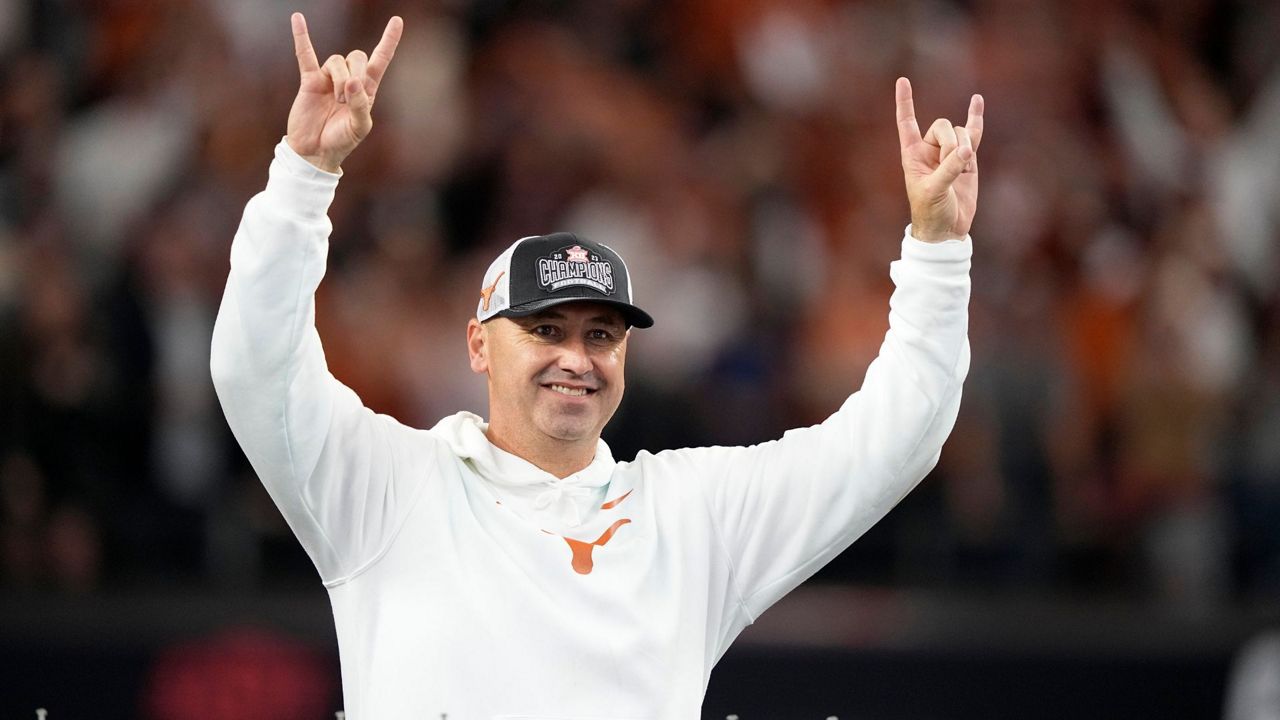With the spring transfer portal window closed, a look at six college football teams that cleaned up in various ways.
Mississippi
In terms of quantity and quality, Ole Miss killed it. In a Nick Saban-less Southeastern Conference, the Rebels might be the best non-Georgia team in 2024.
The Rebels had good returning pieces at quarterback (Jaxson Dart) and receiver, and then Lane Kiffin went all in behind the Grove Collective to build a contender in the first year of the 12-team College Football Playoff.
The jewels of the class are mostly on the defensive side with DT Walter Nolen (Texas A&M), DE Princely Umanmielen (Florida) and LB Chris Paul (Arkansas), plus WR Juice Wells (South Carolina). The Rebels sprinkled in offensive line help via Washington and topped it off with running back (Henry Parrish, Miami) and secondary (Isaiah Hamilton, Houston) depth in the spring.
Oregon
The Ducks replaced the most experienced quarterback college football has ever had (Bo Nix) with another sixth-year player. Dillon Gabriel (UCF, Oklahoma) might not develop into a first-round draft pick, but he is more than capable of being a quality triggerman for a prolific college offense.
WR Evan Stewart (Texas A&M) is very likely to develop into a first-round draft pick. The Ducks added two good cornerbacks (Jabbar Muhammad, Washington; Kam Alexander, UTSA) and bulked up an already promising defensive line (Jamaree Caldwell, Houston; Derrick Harmon, Michigan State).
Beating Southern California for Harmon and grabbing S Peyton Woodyard (Alabama) in the spring punctuated the transfer class and has the Ducks ready roll into the Big Ten.
Miami
In Year 3 under Mario Cristobal, Miami is looking for a breakthrough.
The Hurricanes made a good case as the winners of the spring transfer window by landing all-Pac-12 RB Damien Martinez (Oregon State), WR Sam Brown (Houston), DT Simeon Barrow (Michigan State), LB Jaylin Alderman (Louisville) and CB Dyoni Hill (Marshall).
That came after adding QB Cam Ward (Washington State), who also considered entering the NFL draft, in the winter.
Ohio State
The Buckeyes' transfer class had just six players, but they shopped at the top of the market.
S Caleb Downs was one of the best defensive players in the country last season as a freshman at Alabama. RB Quinshon Judkins ran for 2,725 yards in two seasons at Mississippi. Will Howard had 48 touchdown passes and 19 TD runs in four seasons at Kansas State. Plus, they added former Alabama starting center Seth McLaughlin and Crimson Tide five-star quarterback signee Julian Sayin.
All that on top of Ohio State's mountain of returning talent and coach Ryan Day is well positioned to snap a three-game losing streak against Michigan or face the consequences.
New coach Kalen DeBoer’s most notable portal acquisition was a bounce-back from Iowa.
Offensive tackle Kadyn Proctor, a freshman starter last year, left in January for his home-state Hawkeyes. He then changed his mind and returned to Alabama in the spring window.
DeBoer lured four of his former Washington players to the SEC, including talented C Parker Brailsford and WR Germie Bernard.
DT LT Overton (Texas A&M), CB Domani Jackson (USC) and S Keon Sabb (Michigan) are high-ceiling additions to the defense. And to replace star K Will Reichard, the Tide signed Groza Award winner Graham Nicholson from Miami, Ohio.
Colorado
Deion Sanders is at it again. After bringing in more than 50 transfers last year, Coach Prime has a transfer class of 39 (and possibly counting).
The Buffaloes badly needed to reinforce their lines after tanking a 3-0 start to Sanders' tenure in Boulder. With that in mind, CU added nine offensive linemen — including Tyler Johnson from Houston and Payton Kirkland from Texas — and 11 defensive linemen — led by B.J. Green from Arizona State and Dayon Hayes from Pittsburgh.
Colorado notably lost RB Dylan Edwards (Kansas State), but brought in a pair of promising ball carriers in Dallan Hayden (Ohio State) and Rashad Amos (Miami, Ohio).



